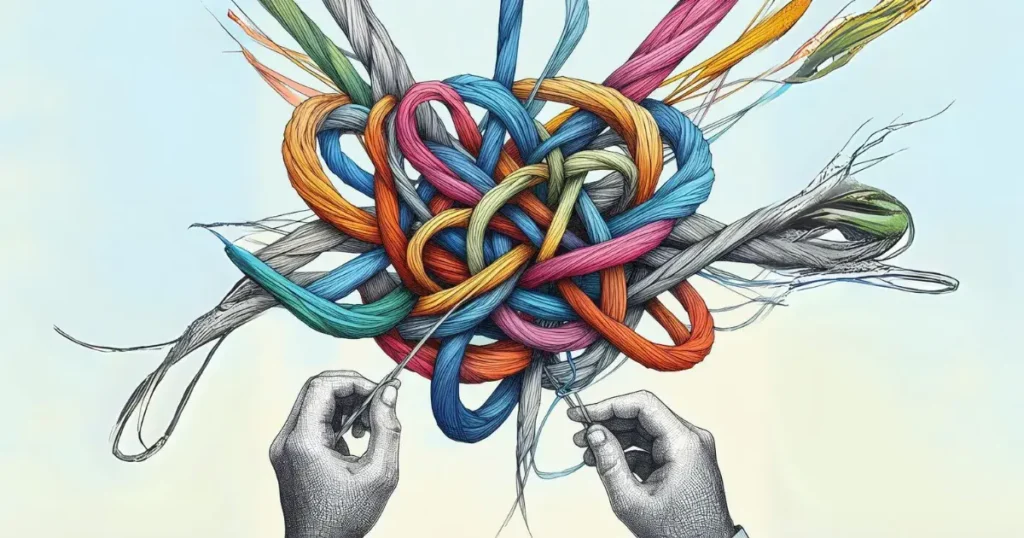In the world of entrepreneurship, self-awareness is a crucial skill that can make or break your success. It’s about understanding your strengths, weaknesses, motivations, and how others perceive you. While it’s easy to get caught up in the hustle and bustle of building a business, taking time for self-reflection can help you make better decisions, navigate challenges effectively, and build stronger relationships with your team and clients.
10 Signs You Lack Self-Awareness
If you’re not sure whether you lack self-awareness, here are 10 signs you lack self-awareness,
1. You have a hard time admitting when you’re wrong
Self-aware people are able to admit when they’ve made a mistake. They’re open to feedback from others and willing to learn from their experiences.
We all make mistakes. It’s inevitable. But if you have trouble admitting when you’re wrong, you’ll miss out on valuable learning opportunities.
2. You’re always blaming others
When things go wrong, you tend to blame everyone else instead of taking some responsibility for your own actions.
It’s natural to feel frustrated or even angry when things don’t go as planned. But if you’re constantly blaming others for your problems, you’re not taking responsibility for your own actions.
Self-aware individuals take ownership of their mistakes and focus on finding solutions rather than pointing fingers.

3. You’re constantly making excuses
When things go wrong, you tend to blame everyone else instead of taking some responsibility for your own actions.
It’s natural to feel frustrated or even angry when things don’t go as planned. But if you’re constantly blaming others for your problems, you’re not taking responsibility for your own actions.
Self-aware individuals take ownership of their mistakes and focus on finding solutions rather than pointing fingers.
4. You’re not very good at listening to others
You tend to interrupt people when they’re talking, and you don’t always take the time to really listen to what they have to say.
Listening is a critical skill for any relationship. It allows you to understand others better and build stronger connections. But if you’re always interrupting people or not fully present in conversations, you’re missing out on valuable information.
Self-aware individuals are active listeners who value the input of others.
5. You have a hard time taking criticism
Even constructive criticism feels like a personal attack.
Feedback is essential for growth, both personally and professionally. But if you take criticism personally, you’ll miss out on opportunities to improve.
Self-aware individuals view criticism as a constructive tool and use it to refine their approach.
6. You’re always the victim
You feel like you’re always being picked on or treated unfairly.
If you constantly feel like you’re being treated unfairly or picked on, it might be a sign that you lack self-awareness.
Self-aware individuals recognize that they have a role to play in their own experiences and take responsibility for their actions.
7. You have an inflated sense of self-importance
You think you’re better than everyone else, and you often expect special treatment.
While confidence is important, an inflated sense of self-importance can be detrimental.
Self-aware individuals are confident in their abilities, but they also recognize their limitations and are open to learning from others.
8. You’re constantly comparing yourself to others
You always seem to be coming up short, and you’re never happy with yourself.
It’s easy to get caught up in comparing yourself to others. But this can lead to feelings of inadequacy and hinder your own progress.
Self-aware individuals focus on their own journey and celebrate their own achievements without getting caught up in the comparison game.
9. You’re not very good at reading social cues
You often say or do things that are inappropriate or offensive without even realizing it.
Being able to read social cues is important for navigating social interactions effectively. If you’re often saying or doing things that make people uncomfortable, it might be a sign that you lack self-awareness.
10. You’re not very good at seeing the big picture
You tend to focus on the small things and get lost in the details.
To achieve your long-term goals, you need to see beyond the day-to-day tasks. If you’re always getting bogged down in the details, you might be missing out on bigger opportunities.
Self-aware individuals have a clear vision and can make decisions that align with that vision.

How to Cultivate Self-Awareness
If you find yourself struggling with any of these signs, it’s important to take steps to develop your self-awareness. This can be done through a variety of methods, such as journaling, meditation, and seeking feedback from others. Here are some strategies to help you cultivate self-awareness:
- Pay Attention to Your Thoughts and Feelings: Regularly check in with yourself. What are you thinking right now? How are you feeling?
- Be Mindful of Your Behavior: Observe how you act in different situations. How do you respond when you’re stressed? How do you interact with others?
- Seek Feedback from Others: Ask friends, family, and colleagues for their honest opinions of you.
- Journaling: Track your thoughts and feelings over time to identify patterns and areas for improvement.
- Meditation: Practice mindfulness to become more aware of your inner world.
Remember, you can’t change someone else, but you can control how you react to them. By being patient, direct, and supportive, you can help someone who lacks self-awareness to become more self-aware.
Conclusion
Self-awareness is a crucial skill that can lead to success and happiness in all aspects of life. By understanding your own thoughts, feelings, and motivations, you can make better decisions, build stronger relationships, and navigate challenges more effectively.
While it takes time and effort to cultivate self-awareness, the rewards are well worth the investment. Embrace the journey of self-discovery, and you’ll reap the benefits of increased self-awareness in all aspects of your life.



